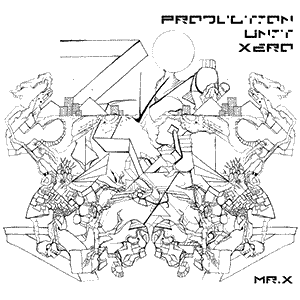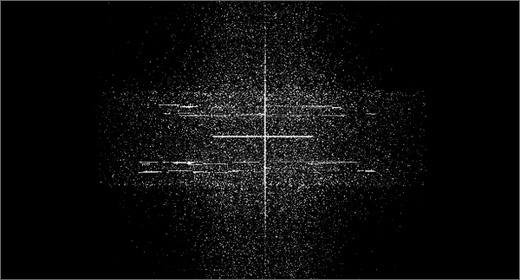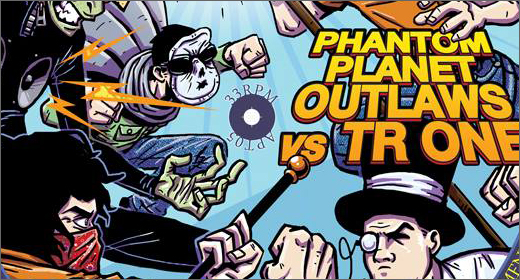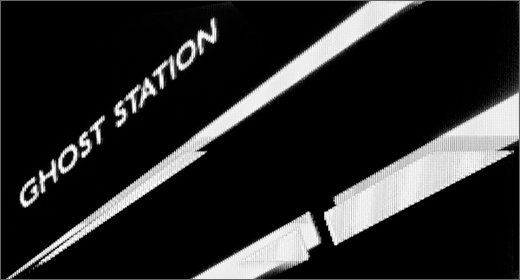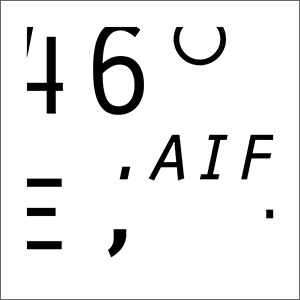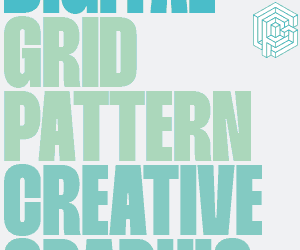Phantom Ghost has about it a compelling elusive quality, as if evaporating when its solidity feels graspable; it seems to float, as if levitating, just above ground, attended by plumes of fog enveloping proceedings, mirroring the spectral figure and blur of the cover.
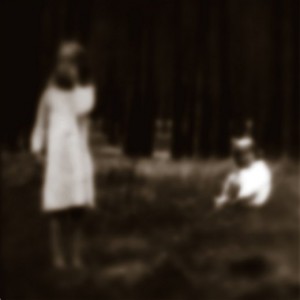
 AUN, project of Montreal experimental scenester, Martin Dumais, has evolved since 2007 over seven slabs of doombient, darkwave and blackened drone unalluringly self-tagged ‘blight metal.’ Lest this have you running for the hills, a click elsewhere yields ‘psyched out industrial prog haze’—a more compelling designation, and a far better descriptor for this latest, Phantom Ghost, which, though it cannot promise an absence of blight, certainly eschews the dread metal. In fact, it seems to draw on more, and more diverse, threads and textures than previous to shape it: the droning intensity of compatriot Tim Hecker is not a new connection to make with AUN, but there’s linkage with other trajectories, other decades—between 80’s shoegaze (MBV) and 90’s indie-loop-tronica (Seefeel), and back to classic 70’s proto-ambient (Cluster & Eno) and Kosmische (Klaus Schulze). Lately grown into a twosome with Julie LeBlanc’s addition, their signature droning intensity manages to be less leaden without major shifts to a paradigm patented on Motorsleep. Phantom Ghost drifts, as is AUN’s wont, between guitar-drone and synthetic ambience, but here in shadows and fog that rises above dark ambient murk, lightened by infusions of femme vox and beats, at once more accessible and complex.
AUN, project of Montreal experimental scenester, Martin Dumais, has evolved since 2007 over seven slabs of doombient, darkwave and blackened drone unalluringly self-tagged ‘blight metal.’ Lest this have you running for the hills, a click elsewhere yields ‘psyched out industrial prog haze’—a more compelling designation, and a far better descriptor for this latest, Phantom Ghost, which, though it cannot promise an absence of blight, certainly eschews the dread metal. In fact, it seems to draw on more, and more diverse, threads and textures than previous to shape it: the droning intensity of compatriot Tim Hecker is not a new connection to make with AUN, but there’s linkage with other trajectories, other decades—between 80’s shoegaze (MBV) and 90’s indie-loop-tronica (Seefeel), and back to classic 70’s proto-ambient (Cluster & Eno) and Kosmische (Klaus Schulze). Lately grown into a twosome with Julie LeBlanc’s addition, their signature droning intensity manages to be less leaden without major shifts to a paradigm patented on Motorsleep. Phantom Ghost drifts, as is AUN’s wont, between guitar-drone and synthetic ambience, but here in shadows and fog that rises above dark ambient murk, lightened by infusions of femme vox and beats, at once more accessible and complex.
Opener “Phantom” hosts heavily effected warble from Julie—more Melissa lovesliescrushing than Liz Cocteau, backed by pleasantly woozy synth melodics—if not eaxctly all-sweetness-and-light, then certainly a sonic shift from the crypt of Cyclic Law (see Black Pyramid) and the ‘blackmetaldoompsychedelia’ of VII. “Out Of Mind” whirls another world away—a dream gauze of guitar swirls and eerie synth vapours, reverbed-out dungeon-doof beatbox, and hypnagogue murmur-mantra. The quasi-mystical caché of LeBlanc’s siren song, playing Circe to Dumais’ circuitry, might well have listeners binding themselves to the nearest mast for fear of falling under its spell. Any shoegaze-dreampop flirtation, though, remains just that, effaced as it is by progressively more innerworld voyaging strategies. The beautifully eerie “Orga II,” is a standout, progressing through an accumlating cumulus of stratospheric string-smear, crepitating percussion, insistent low-end pulse and Badalamentian syn-phonics, evoking a sense of a spirit world voyage. The ambience imbuing Phantom Ghost is tenebrous, sure, but definitely several rays short of pitch black; the light is not exactly cordially invited to conjoin in these spirit-world ceremonials, but a distinct space is left for a freer spirit to play—with the lyrical turn of “Travellers” or the phase-shift starbursts of “Ghost,” and “Nineteen Eighty-Four,” which jettisons the Sturm und Drang for a ballet of pure phase guitar, all evincing Dumais’ cross-genre hybridizing sleight of hand.
Overall, the musical body of Phantom Ghost has about it a compelling elusive quality, as if evaporating when its solidity feels graspable; it seems to float, as if levitating, just above ground, attended by plumes of fog enveloping proceedings, mirroring the spectral figure and blur of the cover; both of the aether and of the earth in its metal-machine music—more Mensch in its spirit, while harnessing a sleeker Maschine. Phantom Ghost is, you might say, a well turned out mutant, which, while still dealing in dark matter, finds an alchemy of psyched-out guitar tone-wrangling and warped electronics, simultaneously luminous and caliginous, marking it as their best work yet. Some small credit for this doubtless may be attributed to the curation of rising player in the post-everything electronic field, Denovali.
Phantom Ghost is available now on Denovali. [Release page]









